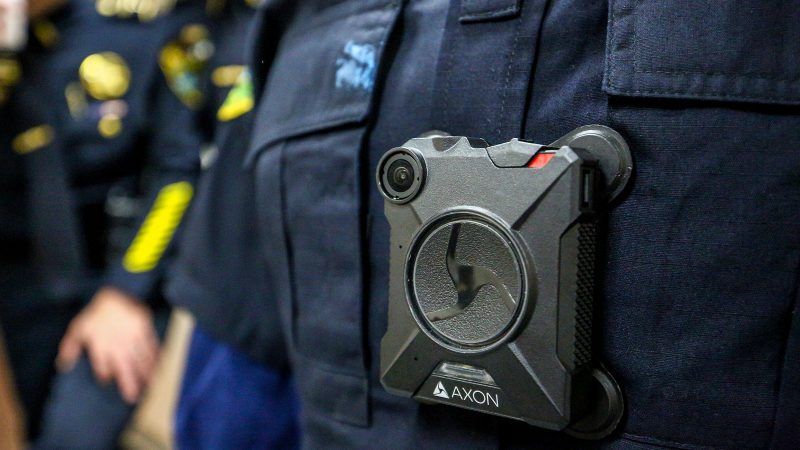California Considering a Ban on Realtime Police Body Camera Facial Recognition
We can still say no to mass surveillance.

San Francisco became in May the first jurisdiction to ban law enforcement use of facial recognition technology. Civil libertarians persuaded the city's Board of Supervisors to pass the measure on the grounds that the government could abuse the technology and make the country more of an oppressive surveillance state.
That same month, the California State Assembly passed a less comprehensive bill that would simply ban law enforcement use of realtime body camera facial recognition technology. Here are the bill's chief justifications for the ban:
The use of facial recognition and other biometric surveillance is the functional equivalent of requiring every person to show a personal photo identification card at all times in violation of recognized constitutional rights. This technology also allows people to be tracked without consent. It would also generate massive databases about law-abiding Californians, and may chill the exercise of free speech in public places.
Facial recognition and other biometric surveillance technology has been repeatedly demonstrated to misidentify women, young people, and people of color and to create an elevated risk of harmful "false positive" identifications.
Facial and other biometric surveillance would corrupt the core purpose of officer-worn body-worn cameras by transforming those devices from transparency and accountability tools into roving surveillance systems.
The California Senate's Public Safety Committee has scheduled a hearing on the bill for next week.
At the federal level, the House Oversight Committee has held two hearings so far on police use of facial recognition surveillance. Among other things, our representatives learned that the FBI already has a database consisting of more than 640 million photographs, including driver's license photos from 21 states.
"People believe that it's inevitable that there's going to be more and more surveillance, more and more police state power, and technology is going to keep creeping into our lives," Brian Hofer, chairman of Oakland's Privacy Advisory Commission, tells the Los Angeles Times. "But we still have the freedom and ability to say no."


Show Comments (28)